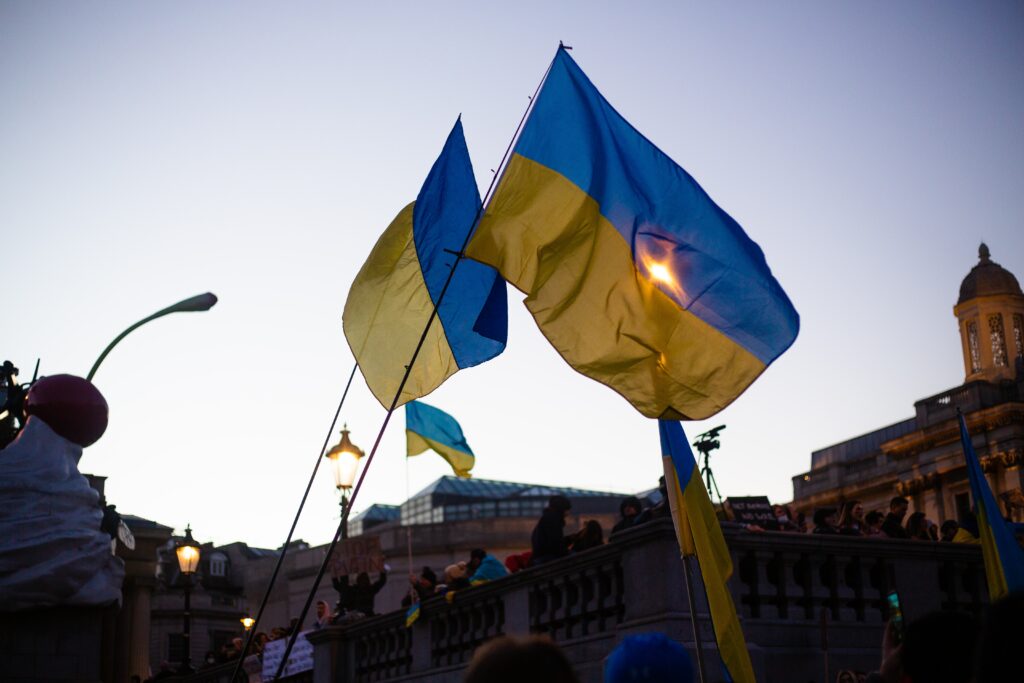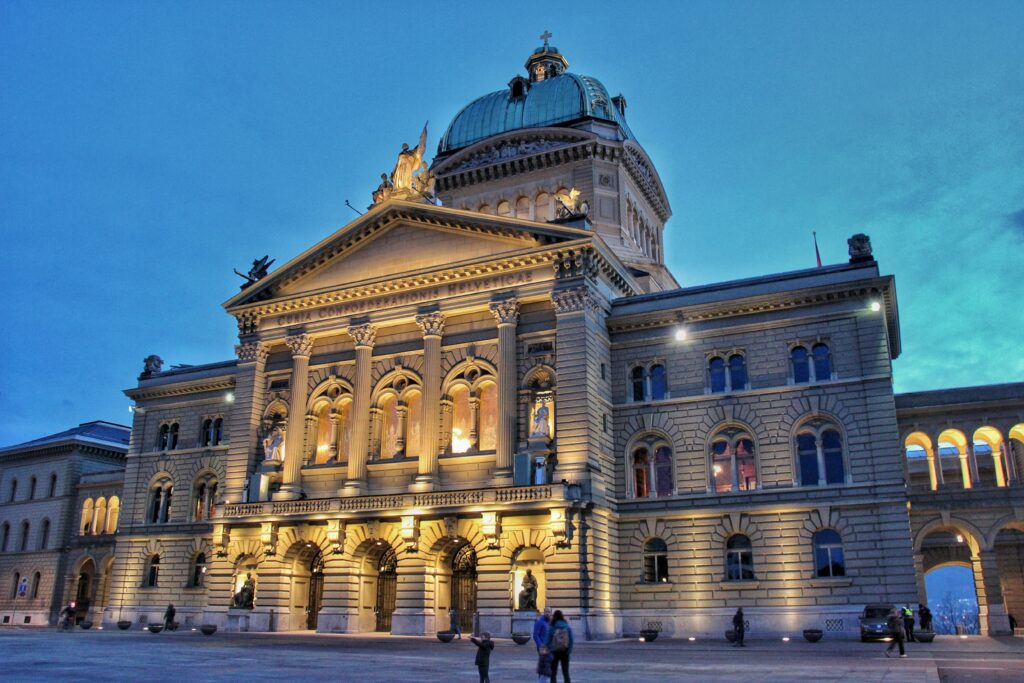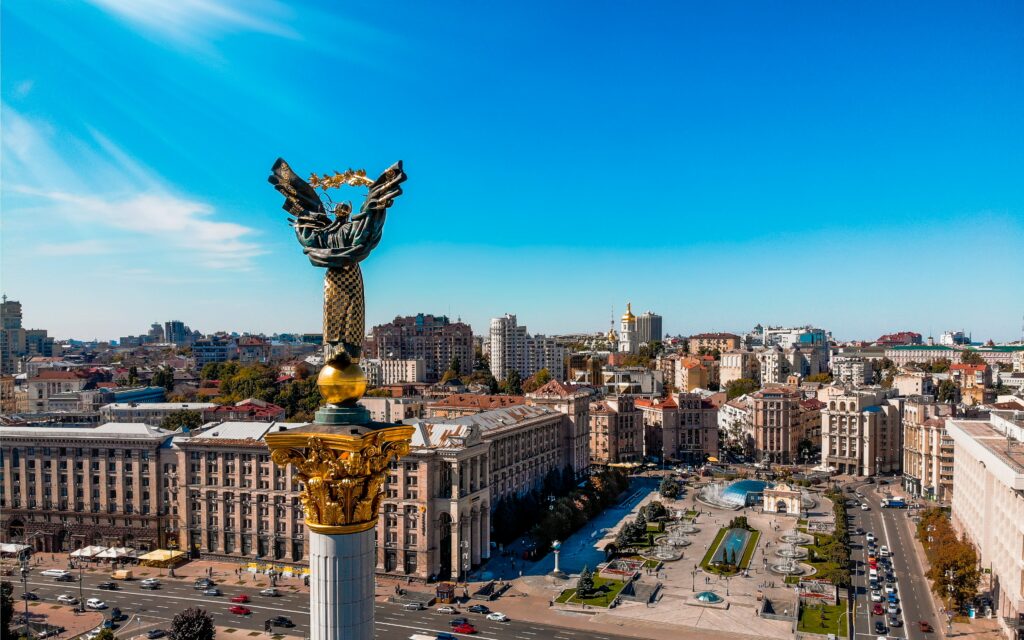jeu, Fév 16th 2023

Although Switzerland has frozen billions in Russian assets, using them to rebuild Ukraine is against the country’s law.
The Swiss government announced this week that confiscating private Russian assets undermines the Swiss Constitution. Moreover, using those assets to help Ukraine would breach Swiss law as it currently stands.
Since Russia invaded Ukraine one year ago, the Swiss federal government has mirrored nearly all the EU-imposed sanctions on Russia – from freezing assets and bank accounts to cutting off Russian businesses and exports. So far, that amount is about 50 billion Swiss francs. Russians, especially wealthy oligarchs, have long taken advantage of Switzerland’s private banking laws, as well as purchasing ski chalets and lakeside villas in the country.
The State Secretariat for Economic Affairs reported late last year that the Swiss sanctions have affected about 7,500 business relationships and a total of 46.1 billion CHF with connections to Russia. Additionally, Switzerland has seized 15 properties. The expropriation of these assets without compensation is not permissible under Swiss law, a government report found Wednesday.
“The confiscation of frozen private assets is inconsistent with the Swiss constitution and the prevailing legal order and violates Switzerland’s international commitments,” the report said. “Other countries have similar constitutional rights and guarantees.” (READ MORE: How Switzerland came to be at the center of the Russo-Ukraine war).

Switzerland’s Parliament has approved of using confiscated funds before, one lawyer says.
According to an editorial written by controversial anti-corruption expert Mark Pieth in SWI SwissInfo, Switzerland could invoke Article 72 of its criminal code to use confiscated assets how it wants.
All assets “that are subject to the power of disposal of a criminal or terrorist organization” can be permanently confiscated, according to Article 72. In addition, “in the case of assets belonging to a person who participates in or supports such an organization, it is presumed that the assets are subject to the power of disposal of the organization until the contrary is proven,” Article 260 says.
Pieth writes that this “special rule was primarily created to target mafia money,” but has been used as recently as 2005 to confiscate funds stolen from Nigeria by its former head of state, Sani Abacha, as they were not “legally acquired.” Switzerland used Article 72 to return funds to the Nigerian people who were harmed by the crime.
“With regard to Russia, a state that launches a war of aggression and thereby violates international law can be accused of being a rogue state.’ However, under international law, even a state that acts criminally probably enjoys sovereign immunity…It is conceivable that Vladimir Putin and his inner circle could be classified as a criminal organization. Oligarchs who feed the war chest would be accomplices, much like mafia henchmen,” Pieth writes. He adds “Switzerland is free to dispose of them as it wishes – it can therefore use the money to rebuild Ukraine.”

How downtown Kyiv looked just two months before Russia invaded.
Meanwhile, the EU has set up a working group to examine the same question. An EU official recently estimated that between the EU and Western allied sanctions, they are sitting on a pot of about $300 billion in Russian assets. As Sweden holds the rotating presidency of the EU Council, the Swedish government is using “legal, financial, economic and political analyses” to get a “clearer picture” of the value of Russian assets and how they can be used.
“In principle, it is clear-cut: Russia must pay for the reconstruction of Ukraine,” Swedish Prime Minister Ulf Kristersson told CNN. “At the same time, this poses difficult questions. This must be done in accordance with EU and international law, and there is currently no direct model for this.”
Ukraine’s economy shrunk by nearly one-third in 2022 as the war obliterated its infrastructure, destroyed businesses and interrupted life for its citizens. The World Bank estimated in the fall of 2022 that the cost of reconstruction in Ukraine is roughly $350 billion. The cost is likely much higher now.
For now, the EU is focused on its tenth round of sanctions against Russia, targeting about $11 billion worth of technology goods, export controls and trade bans.
“We are weakening Russia’s ability to keep its war machinery in place,” European Commission President Ursula von der Leyen told European Parliament Wednesday. “We have adopted nine packages of sanctions. The Russian economy is shrinking. We need to keep up the pressure.”
Cet article peut être librement partagé et réimprimé, à condition qu'il renvoie clairement à l'article original.
